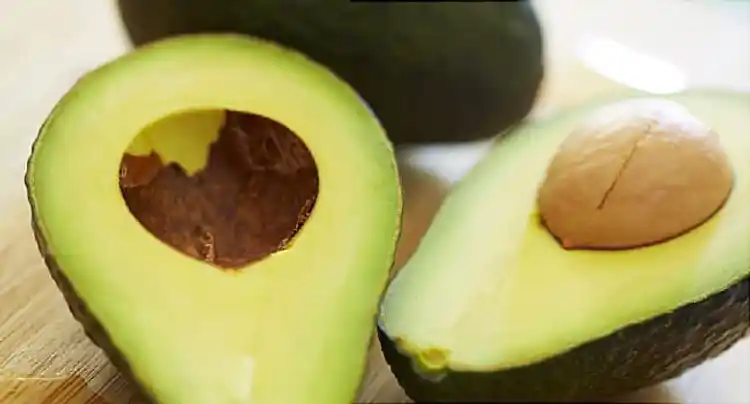Video on Good Vs. Bad Fat

Hide Video Transcript
Video Transcript
There are good fats and there is not-so-good-for-your fats. So let's talk about the good fats first. Unsaturated fats are actually really important. They provide essential fatty acids for the body. They also give you a delivery system for really important vitamins, such as vitamin A and vitamin D, and, additionally, can provide energy, especially to young children, to build their brain.
Now, some really important good fats are omega-3s. They protect the heart for older people, and they help with the developing brain in infants and children. Where do you find these fats? Avocados, fish, nuts, olive oils-- those are all great sources of these fats. And it's an important part of your diet.
The not-so-good fats includes saturated fats and trans fats. Now, saturated fats, no surprise, you find them in French fries and chips, processed foods. Those are not good for you. They can increase your heart risk for disease.
Now, trans fats come from partially hydrogenated oils, so if you see that on the label be aware. When the industry uses the process of turning oil into a shortening type substance for processed foods and for ready-made foods, sometimes the fats can actually change the chemical structure, and that's where trans fats come from. The problem with trans fats is that they can increase your risk of heart disease by affecting your cholesterol.
So they can make your good cholesterol, the HDL, go down and your bad cholesterol, the LDL, go up, so not a great idea to have too much trans fat in your diet. And those can be found in icings and processed foods like crackers, ready-to-eat foods as well. So keep an eye on those.
So let's go back to the beginning. There are good fats and there's not-so-good fats. The key is to eat good fats in moderation and avoid those not-so-good fats. And remember, exercise and a good night's rest is just as important as a really good, nutritious diet to feel well and be well.
Now, some really important good fats are omega-3s. They protect the heart for older people, and they help with the developing brain in infants and children. Where do you find these fats? Avocados, fish, nuts, olive oils-- those are all great sources of these fats. And it's an important part of your diet.
The not-so-good fats includes saturated fats and trans fats. Now, saturated fats, no surprise, you find them in French fries and chips, processed foods. Those are not good for you. They can increase your heart risk for disease.
Now, trans fats come from partially hydrogenated oils, so if you see that on the label be aware. When the industry uses the process of turning oil into a shortening type substance for processed foods and for ready-made foods, sometimes the fats can actually change the chemical structure, and that's where trans fats come from. The problem with trans fats is that they can increase your risk of heart disease by affecting your cholesterol.
So they can make your good cholesterol, the HDL, go down and your bad cholesterol, the LDL, go up, so not a great idea to have too much trans fat in your diet. And those can be found in icings and processed foods like crackers, ready-to-eat foods as well. So keep an eye on those.
So let's go back to the beginning. There are good fats and there's not-so-good fats. The key is to eat good fats in moderation and avoid those not-so-good fats. And remember, exercise and a good night's rest is just as important as a really good, nutritious diet to feel well and be well.

